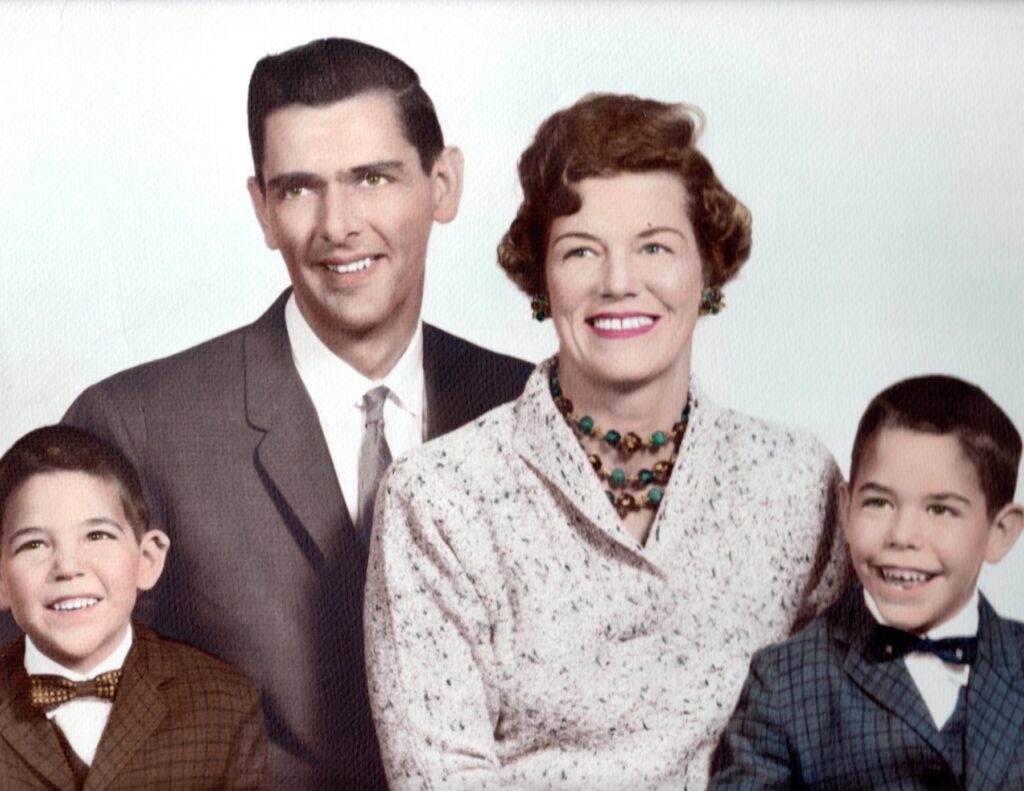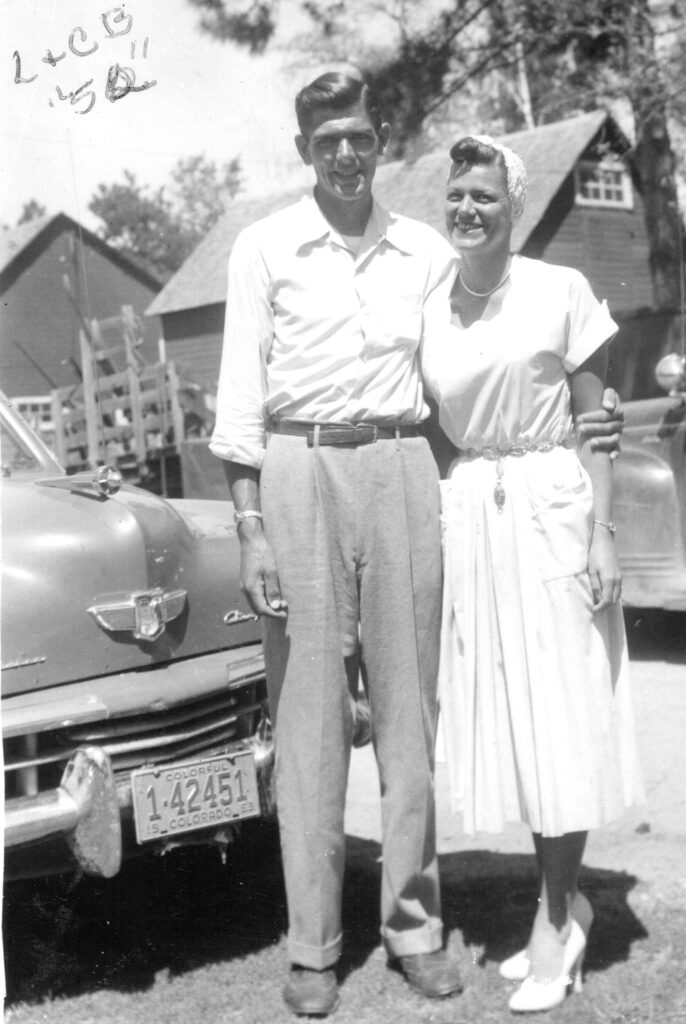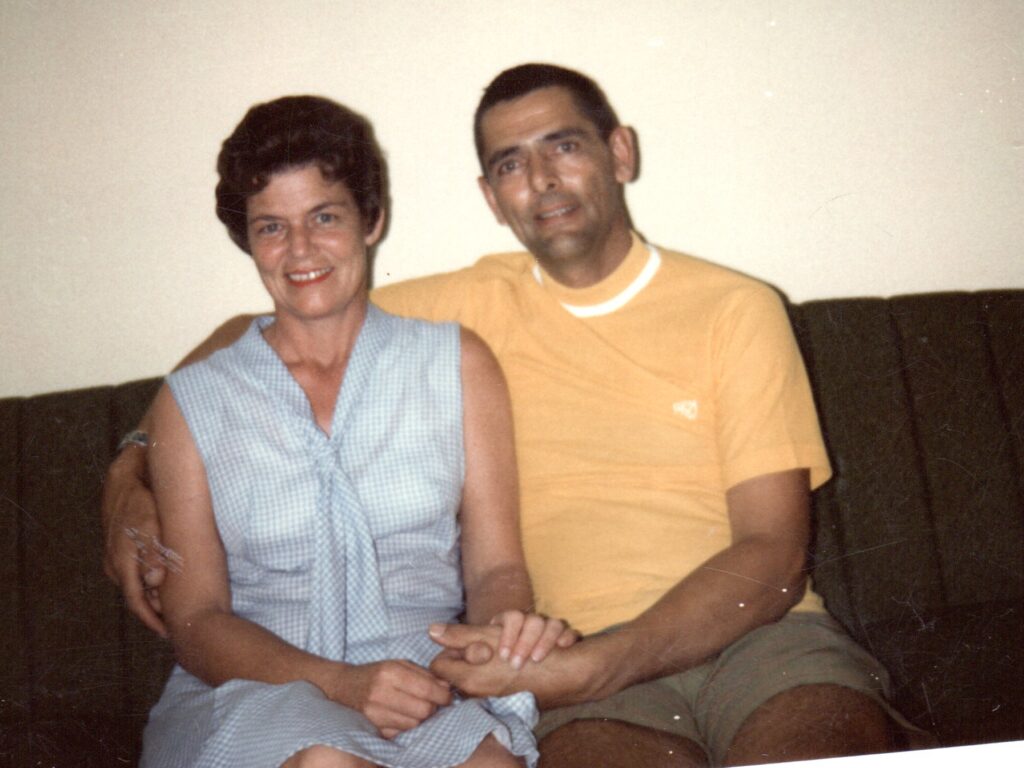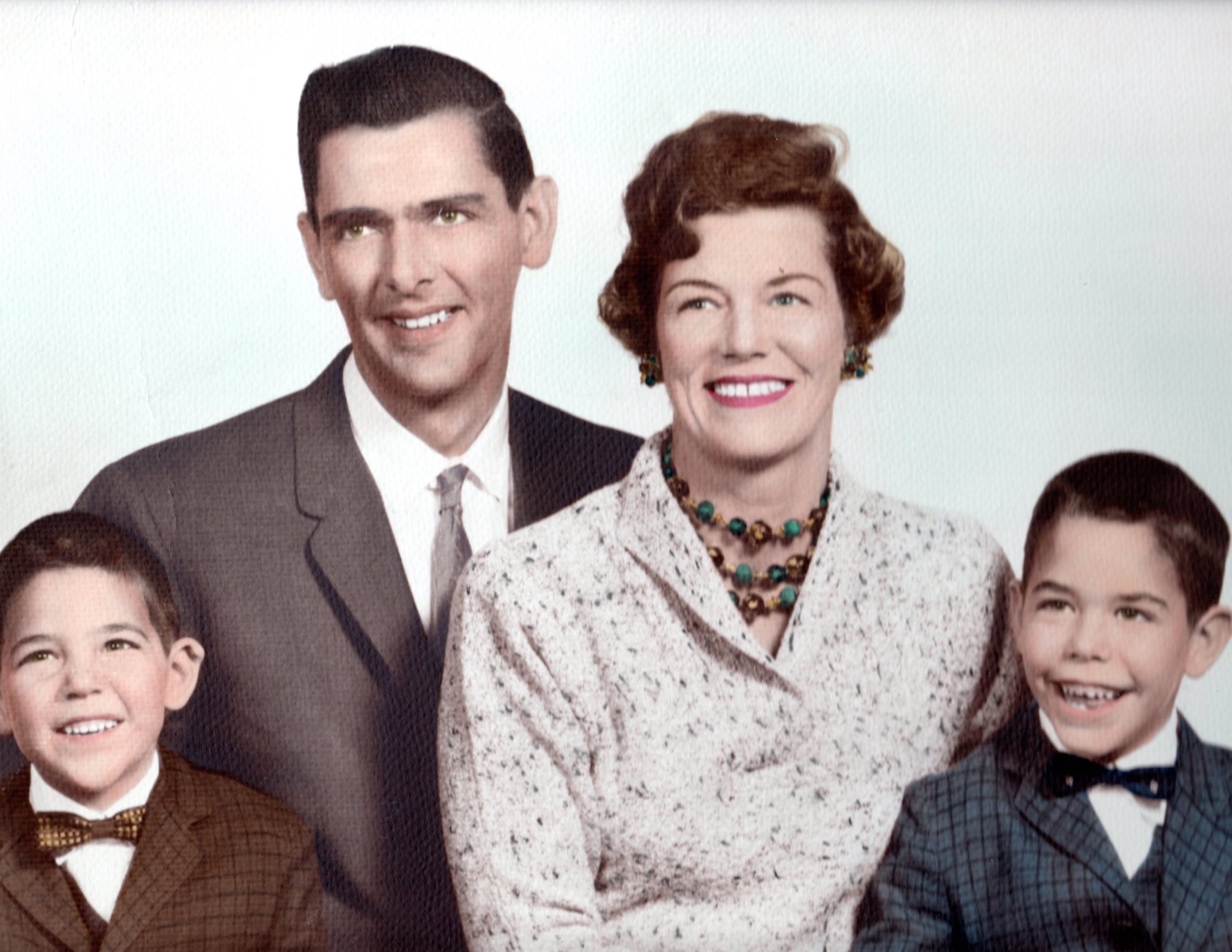Childhood Experiences
It is my understanding that before the work of Charles Darwin (1809-1882) and Sigmund Freud (1856-1939), no one thought that early childhood experiences had much of an impact on human development. Now, most parents live in terror that a singular event will occur that will scar their children for life. The truth is somewhere in between. Children are resilient and can recover from many difficult events. On the other hand, sometimes early childhood traumas shape a person’s entire future. What I think is so fascinating (and scary), is parents can never know what events will be significant to their children. Often events which seem so huge to parents are not remembered by the children, and events which seem minor to parents are never forgotten by the child and have a lasting impact.
Childhood Experiences Are Not the End of the Story

Family circa 1963
I had great parents who gave my brother and me a lot of freedom and were not too worried about us being ruined by hard events. Today they would be labeled free-range parents. I grew up in a great family where I was loved and free to explore my world and ask questions. However, it was not an academic home. I was not a good reader and was a horrible speller, so I was grateful there was never a push to get As or read a lot. I didn’t like school and did only enough to get by with Cs. My mom always felt bad that she didn’t read more or encourage us to read. I told her often that she shouldn’t feel bad, she was the best mom for me.
Soon after my twenty-third birthday I read my first book. Once I started, I have not been able to stop. Growing up in a “non-academic” home hadn’t hurt me at all. When I wanted to learn and read, there was nothing stopping me. Although it is impossible to know what would have happened if my parents had pushed academics, I think there is a high probability they might have turned me off to reading or going to school instead.

Parents before kids. Circa 1952
Remembering and Evaluating is Not Easy
Early childhood experiences do make a difference, but it is so hard to know what kind of difference they are going to make. As adults we all need to reflect on our childhood home and experiences, because they do have an impact on who we are and how we think. However, thinking about these experiences is hard and emotional.
My parents, like all parents, were not perfect. They said things and did things which hurt me. When I broke up with my first girlfriend in ninth grade, my parents didn’t take it seriously. My mom told me it was only “puppy love.” I had no idea what “puppy love” was, but my heart was broken and felt like I could never trust my mother with my deepest pain. Halfway through high school I wanted to learn to play the guitar. My parents discouraged the idea; they thought that playing the guitar would lead me to playing in a rock band and doing drugs. One day, when my mom was cleaning my room, she picked up the guitar and discovered a rosin bag I kept in it to keep any moisture from warping the inexpensive wood. She thought it was drugs and called the police. I felt like my parents never trusted me and thought I would be a hopeless drug addict. Those words and events are painful to remember. I would like to pretend that they never happened. But in remembering them as an adult, I can understand their point of view in ways I couldn’t as a teenager. I can also forgive them and better understand my own feelings and thoughts.
I think people who are really happy have done the work of remembering their childhood. They understand what gifts they were given and are grateful. They also understand what harm was done to them and forgive. This isn’t easy.
When we think about the gifts we received as children, we are humbled as we realize that whatever we have and whatever we have achieved as adults is because, when we were children, there were adults who cared for us.

Parents circa 1973. I am halfway through high school.
When we think about the harm that was done to us by our parents it is easier to be angry and bitter, than it is to forgive. But people who blame others for their misfortunates are never happy.
My Current Memory and Struggle
Recently, we were scheduled to drive to Denver (a two-hour drive from our home in Cheyenne). A good friend whom we have known for thirty years was turning fifty and invited us to his party. He normally lives in Minnesota; we do not get to see him often and I was looking forward to the party.
 In other news (trust me, this will all come together shortly), my leg has been bothering me for a couple of weeks (see my blog on pain). Some days the pain has been worse than others. My doctor eventually scheduled an x-ray, and the Friday before the party we got the results: a fractured fibia. As a result of the pain, I did not sleep well that Friday night and woke up on Saturday morning hurting and very tired. It was a hard decision, but I decided NOT to drive to Denver. I had a very nice day, doing almost nothing and sleeping a lot.
In other news (trust me, this will all come together shortly), my leg has been bothering me for a couple of weeks (see my blog on pain). Some days the pain has been worse than others. My doctor eventually scheduled an x-ray, and the Friday before the party we got the results: a fractured fibia. As a result of the pain, I did not sleep well that Friday night and woke up on Saturday morning hurting and very tired. It was a hard decision, but I decided NOT to drive to Denver. I had a very nice day, doing almost nothing and sleeping a lot.
However, I heard my father’s voice all day long. (He passed away ten years ago). The voice in my head was clear, “Real men keep their obligations, pain is no excuse.” Because I have spent some time over the years reflecting on this voice, I tried to rebuke it and say to myself, “No, sometimes pain is a good reason to make a change. My body is speaking to me and I should listen.”
These words from my father live deep in my brain, I don’t think they will ever go away. Many times, this sentence has helped me make good decisions. There have been times when I have been in pain and his voice has helped me to finish a difficult task. But in this instance it was annoying.
We all have words, sentences, and events from our childhood that live in our memories. Some of these memories bring us joy. Other memories are painful and can lead us in the wrong direction if they are not carefully processed. Most often, they are like my recent example, they can be helpful-but not always.
Finding True Happiness
If we are going to find true happiness, we must think about our childhood and honestly evaluate the messages that we continue to hear. As we evaluate these messages as adults, we can be more objective, gain a new perspective, and increase in wisdom. As I have said, this is not easy and seldom can we do this work alone. We need others who will listen to our story and help us sort through the memories we have.
If you have never carefully evaluated your childhood, I pray that you will have the courage to find a good friend, a professional counselor, or a life coach who will listen to your story and help you to evaluate the messages which are buried deep in your brain. Thirty years ago, when I was trained as a counselor, I learned a lot about how to help others work through their stories. Counseling school was also a safe environment where I worked through my own story. I continue to learn how this process works, not only through reading and talking with others, but in my recent training as a life coach. If I can ever be help to you working through your story, please do not hesitate to contact me.
Thanks for reading
